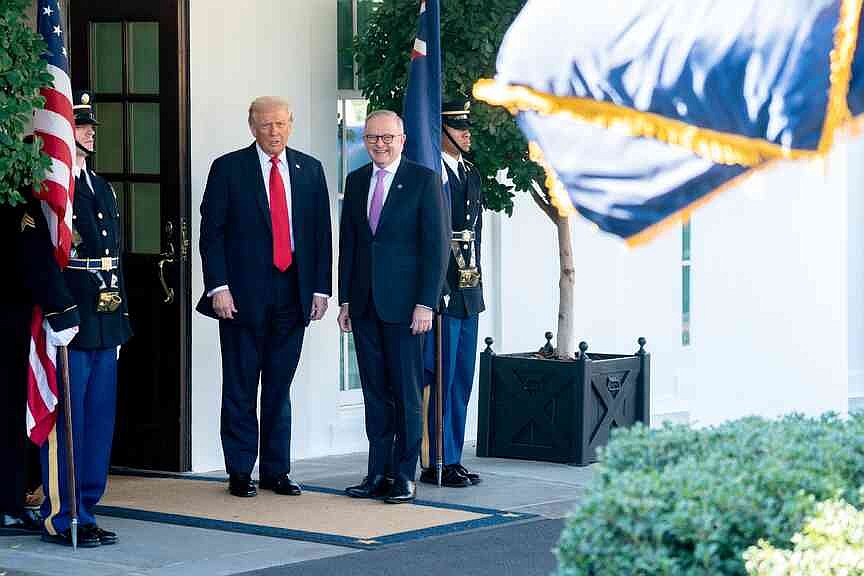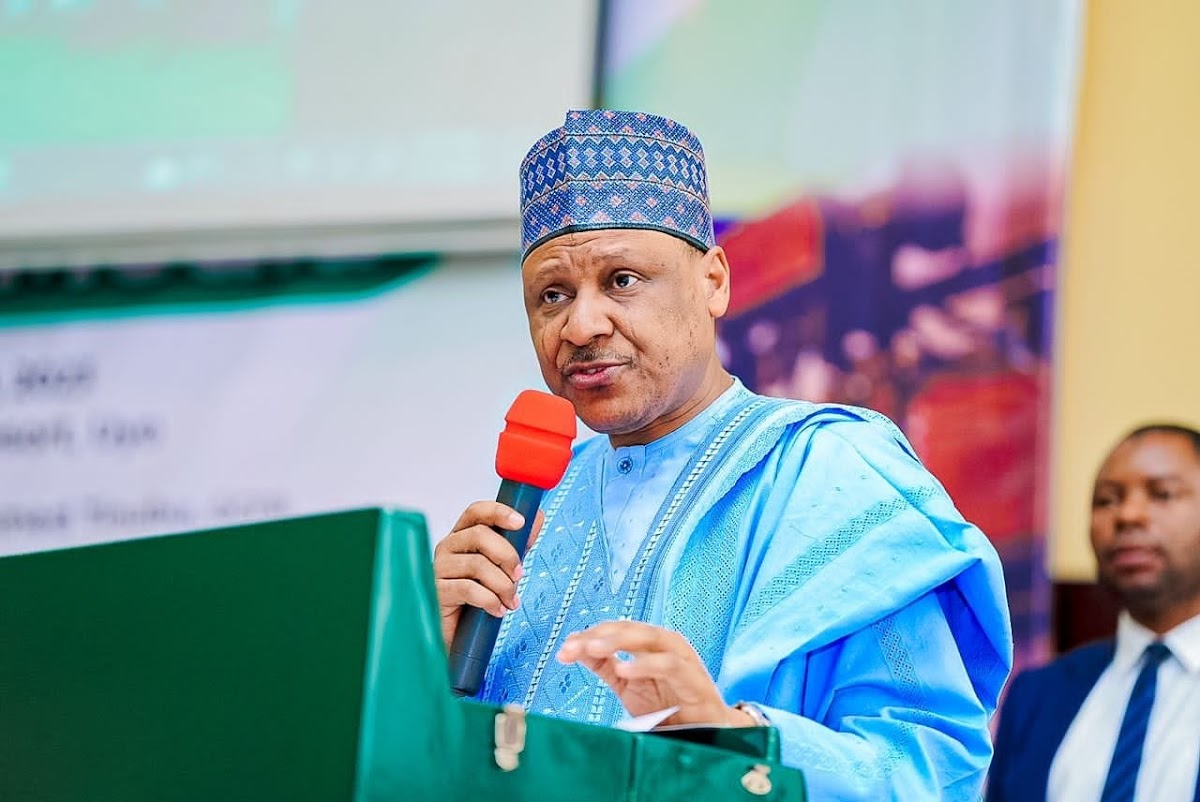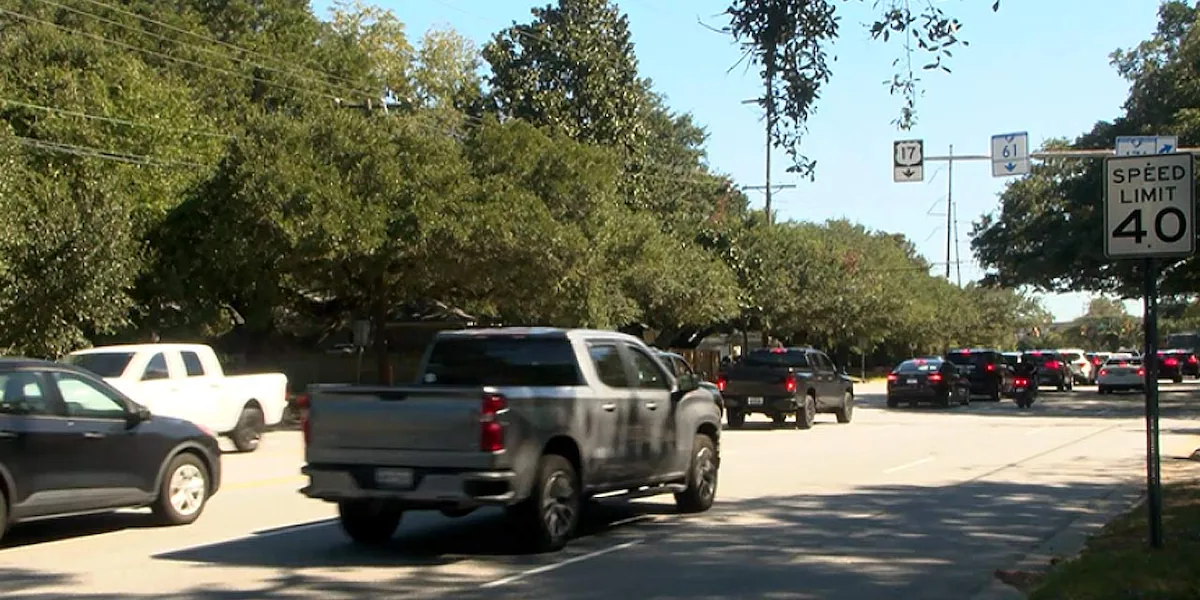Copyright Arkansas Online

U.S. President Donald Trump signed an agreement with visiting Australian Prime Minister Anthony Albanese to boost access to critical minerals and rare earths as the U.S. looks to reduce reliance on Chinese supply chains. "We are discussing critical minerals and rare earths and we're going to be signing an agreement that's been negotiated over a period of four or five months," Trump said at the White House on Monday as the two leaders met. "In about a year from now, we'll have so much critical mineral and rare earths that you won't know what to do with them." Albanese said the deal represented an $8.5 billion "pipeline that we have ready to go." He hailed the agreement on minerals and rare earths as "taking it to the next level," praising the economic and defense cooperation between the two countries. The two leaders said the agreement would include Australian processing of rare earths, with Albanese adding that Australia had "capacity" to expand those efforts. The deal will begin with the U.S. and Australia each paying $1 billion over the next six months for initial projects, with some further projects in both countries and one development to include Japan, the Australian prime minister said. The sitdown, Albanese's first White House visit since Trump retook power, comes as the Australian leader looks to shore up ties with the U.S., using his nation's wealth in critical minerals as leverage. China's move to impose unprecedented export restrictions on rare earths has rattled economies across the globe, with U.S. Treasury Secretary Scott Bessent saying last week that allies -- including Australia -- are in talks about a united response. Australia, which holds the world's fourth-largest deposits of rare earths, has sought to position itself as a viable alternative to China for supplies crucial for industries covering semiconductors, defense technology, renewable energy and other sectors. The country is also the base of the only producer of heavy rare earths outside China through Lynas Rare Earths Ltd. Efforts to secure a deal were underway ahead of Albanese's visit. More than a dozen Australian mining firms held meetings last month in Washington with officials from various agencies and were told the U.S. was looking for ways to obtain equity-like stakes in companies, according to people familiar with the talks, part of a broader American strategy to develop supply chains to compete with China. Australian Treasurer Jim Chalmers met with U.S. investors from firms including Blackstone Inc. and Blue Owl Capital in New York last week to pitch his country as a stable, resource-rich destination for global capital and a key partner in efforts to diversify critical supply chains. There has been growing confidence that Australia and the United States would begin discussions on how Canberra could provide secure rare earth shipments and bolster U.S. capabilities. That belief has sparked investor enthusiasm, sending shares of miners such as Lynas up by over 150% during the past 12 months. Trump on Monday said the two leaders would also discuss "trade, submarines, lots of other military equipment," with defense matters high on the agenda. The U.S. president has pressed Canberra to increase defense spending to 3.5% of gross domestic product from around 2% now, a move Australia has so far resisted. Another key issue is an arrangement for the U.S. under the Aukus pact to sell Australia as many as five nuclear-powered Virginia-class submarines by the early 2030s. Australia and the U.K. would then design and build a next-generation submarine partly using American technology, due to be completed in the 2040s. The Aukus agreement was signed by former President Joe Biden's team in 2021 to counter Chinese military expansion in the Indo-Pacific region and the submarine deal is central to the collective security agreement. The Trump administration, however, is reviewing the pact to determine if it is "aligned with the President's America First agenda," according to the Pentagon, raising fears that Trump could quit the agreement. Officials from Australia and the U.K., though, have downplayed that prospect. And Trump on Monday suggested he planned to push forward with the submarine sales. "We are doing that," Trump said in response to a question about expediting the sales. US, CHINA NEGOTIATE Trump said Monday the U.S. commands "great respect" from China and that he will reach a "fantastic deal" with Chinese President Xi Jinping when the two leaders meet soon. Trump's remarks came after China infuriated him by expanding export controls on rare earth products that are used in smartphones, fighter jets, electric vehicles and more and while he was hosting Albanese. "I think we're going to end up having a fantastic deal with China," Trump said. "It's going to be a great trade deal. It's going to be fantastic for both countries, and it's going to be fantastic for the entire world." When asked about China's leverage, Trump said China "threatened us with rare earths, and I threatened them with tariffs." But he insisted his good relationship with Xi means they would work out "a very fair deal." All eyes are on a potential meeting between Trump and Xi because any failure to reach some agreement raises the risk of destabilizing not only relations between the two superpowers, but also the global economy. Trump affirmed he would meet with Xi this month on the sidelines of the Asia Pacific Economic Cooperation summit, a grouping of 21 economies. Beijing has not announced plans for Xi to make the trip to South Korea, but it's not unusual for such details to emerge closer to the travel date. The president has threatened to impose a new 100% tariff on China in response to China's expanded rules on rare earth products. And he said Monday that it has already had results. "Now, they're treating us with great respect," Trump said. "Now, we'll see what happens. I said, if we don't make a deal, I'm putting on an additional 100% on November 1. I think we'll make a deal." Since returning to the White House, Trump has levied additional 30% across-the-board tariffs on China. Trump said the total rate on Chinese goods is about 55% to 57% and the country has paid the U.S. "hundreds of billions of dollars worth of money for tariffs." Beijing, however, has indicated it would play hardball. "Threatening high tariffs is not the right way to deal with China," Lin Jian, a spokesperson for the Chinese foreign ministry, said last week in response to Trump's new tariffs threat. At the meeting with Albanese, Trump said he has other options to use against China: "They can't get parts for their airplanes. We build their airplanes." Still, he said he prefers reaching a deal. "I want to be good to China. I love my relationship with President Xi," Trump said. Information for this article was contributed by Lauren Dezenski, Hadriana Lowenkron, James Mayger and Paul-Alain Hunt of Bloomberg (WPNS) and by Didi Tang of The Associated Press.



